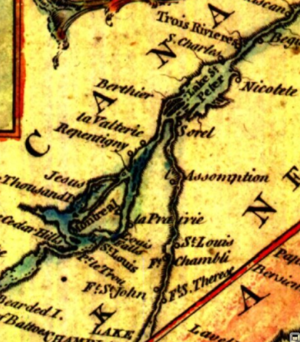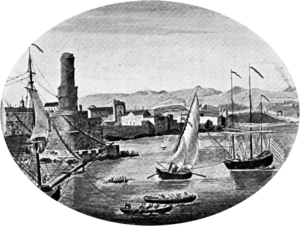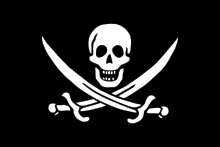In an editorial last week, The Los Angeles Times gave NSA whistleblower Edward Snowden credit for the mild NSA reform that was enacted by congress under the USA Freedom Act and signed into law by President Barack Obama. The editors also called for Mr. Snowden’s prosecution.
When he announced Tuesday that he would sign a bill ending the National Security Agency’s bulk collection of Americans’ telephone records and making other reforms in surveillance laws, President Obama praised Congress – and himself. [..]
Unacknowledged by the president was the man who can fairly be called the ultimate author of this legislation: former NSA contractor Edward Snowden, who has been charged with violating the Espionage Act and is now living in exile in Russia.
Without Snowden’s unauthorized disclosures two years ago, neither the public nor many members of Congress would have known that the government, acting under a strained interpretation of the Patriot Act, was vacuuming up and storing millions of Americans’ telephone records. That program will end after a six-month transition period under the bill signed by Obama. [..]
A pardon for Snowden now would be premature. But if he were to return to this country to face the charges against him, the fact that he revealed the existence of a program that has now been repudiated by all three branches of government would constitute a strong argument for leniency. Snowden should come home and make that case.
During his campaign for president, Mr. Obama promised he would rein in the NSA and he promptly broke that promise and gave the NSA even more power to spr on American citizens. Only after the Snowden leaks was he dragged kicking and screaming to do what he promised.
Lawyer and Journalist for The Intercept, Glenn Grenwald tells us why the LA times is wrong about prosecuting Mr. Snowden, but also why the media, especially the so-called left wing media, has been so wrong about him.
Two years ago, the first story based on the Snowden archive was published in the Guardian, revealing a program of domestic mass surveillance which, at least in its original form, ended this week. To commemorate that anniversary, Edward Snowden himself reflected in a New York Times Op-Ed on the “power of an informed public” when it comes to the worldwide debate over surveillance and privacy.
But we realized from the start that the debate provoked by these disclosures would be at least as much about journalism as privacy or state secrecy. And that was a debate we not only anticipated but actively sought, one that would examine the role journalism ought to play in a democracy and the proper relationship of journalists to those who wield the greatest political and economic power.
That debate definitely happened, not just in the U.S. but around the world. And it was revealing in all sorts of ways. In fact, of all the revelations over the last two years, one of the most illuminating and stunning – at least for me – has been the reaction of many in the American media to Edward Snowden as a source.
When it comes to taking the lead in advocating for the criminalization of leaking and demanding the lengthy imprisonment of our source, it hasn’t been the U.S. Government performing that role but rather – just as was the case for WikiLeaks disclosures – those who call themselves “journalists.” Just think about what an amazing feat of propaganda that is, one of which most governments could only dream: let’s try to get journalists themselves to take the lead in demonizing whistleblowers and arguing that sources should be imprisoned! As much of an authoritarian pipe dream as that may seem to be, that is exactly what happened during the Snowden debate. [..]
So many journalists were furious about the revelations, and were demanding prosecution for it, that there should have been a club created called Journalists Against Transparency or Journalists for State Secrecy and it would have been highly populated. They weren’t even embarrassed about it. There was no pretense, no notion that those who want to be regarded as “journalists” should at least pretend to favor transparency, disclosures, and sources. They were unabashed about their mentality that so identifies with and is subservient to the National Security State that they view controversies exactly the same way as those officials: someone who reveals information that the state has deemed should be secret belongs in prison – at least when those revelations reflect poorly on top U.S. officials. [..]
The LAT editors began by acknowledging that Snowden, not President Obama, is “the ultimate author” of the so-called surveillance reform enacted into law. They also acknowledge that “the American people have Snowden to thank for these reforms.”
Despite that, they are opposed to a pardon or to clemency. While generously conceding that Snowden has “a strong argument for leniency,” they nonetheless insist that “in a society of laws, someone who engages in civil disobedience in a higher cause should be prepared to accept the consequences.”
I see this argument often and it’s hard to overstate how foul it is. To begin with, if someone really believes that, they should be demanding the imprisonment of every person who ever leaks information deemed “classified,” since it’s an argument that demands the prosecution of anyone who breaks the law, or at least “consequences” for them. That would mean dragging virtually all of Washington, which leaks constantly and daily, into a criminal court – to say nothing of their other crimes such as torture. But of course such high-minded media lectures about the “rule of law” are applied only to those who are averse to Washington’s halls of power, not to those who run them.
 Writing for Politico, “Energy Visionary” Vaclav Smil writes in Revolution? More like a crawl:
Writing for Politico, “Energy Visionary” Vaclav Smil writes in Revolution? More like a crawl:



 Port Royal provided a safe harbour initially for privateers and subsequently for pirates plying the shipping lanes to and from Spain and Panama. Buccaneers found Port Royal appealing for several reasons. Its proximity to trade routes allowed them easy access to prey, but the most important advantage was the port’s proximity to several of the only safe passages or straits giving access to the Spanish Main from the Atlantic. The harbour was large enough to accommodate their ships and provided a place to careen and repair these vessels. It was also ideally situated for launching raids on Spanish settlements. From Port Royal, Henry Morgan attacked Panama, Portobello, and Maracaibo. Roche Brasiliano, John Davis (buccaneer), and Edward Mansveldt (Mansfield) also came to Port Royal.
Port Royal provided a safe harbour initially for privateers and subsequently for pirates plying the shipping lanes to and from Spain and Panama. Buccaneers found Port Royal appealing for several reasons. Its proximity to trade routes allowed them easy access to prey, but the most important advantage was the port’s proximity to several of the only safe passages or straits giving access to the Spanish Main from the Atlantic. The harbour was large enough to accommodate their ships and provided a place to careen and repair these vessels. It was also ideally situated for launching raids on Spanish settlements. From Port Royal, Henry Morgan attacked Panama, Portobello, and Maracaibo. Roche Brasiliano, John Davis (buccaneer), and Edward Mansveldt (Mansfield) also came to Port Royal.
Recent Comments